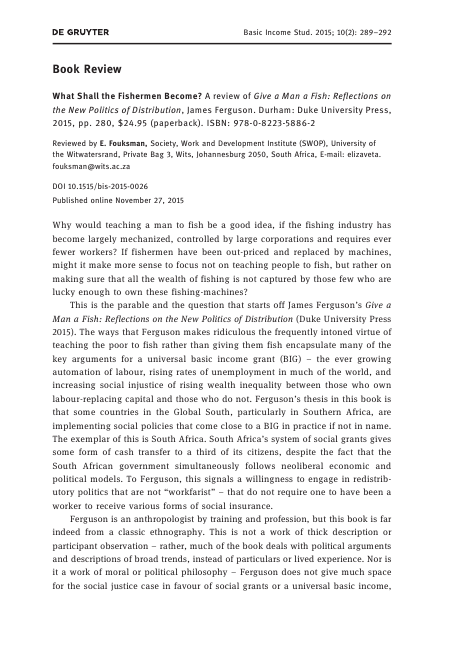
Date: 2024-10-19 Page is: DBtxt003.php txt00011023
Ideas
Universal Basic Income
Y Combinator Wants to Study Universal Income. Here’s Where It Can Start.
Burgess COMMENTARY
Peter Burgess
Y Combinator Wants to Study Universal Income. Here’s Where It Can Start.
loans lending money cashRobert Kneschke / Shutterstock
POLICY Noah Kulwin @nkulw
Y Combinator, the highly regarded and influential San Francisco startup incubator, wants to fund someone to conduct an in-house study of the policy of a “basic income.”
In a blog post, YC President Sam Altman says that the project would take about five years, and that he believes in 50 years from now, “it will seem ridiculous that we used fear of not being able to eat as a way to motivate people.”
“Our idea is to give a basic income to a group of people in the U.S. for a five-year period, though we’re flexible on that and all aspects of the project — we are far from experts on this kind of research,” Altman wrote. “We’d be especially interested in a combination of selecting people at random, and selecting people who are driven and talented but come from poor backgrounds. We’re open to doing this in either one geographic area, or nationally distributed.”
What is a basic income? Last year, Dylan Matthews at our sister site Vox.com* explained it as “shorthand for a range of proposals that share the idea of giving everyone in a given polity a certain amount of money on a regular basis.”
The idea of a universal income, basically a minimum welfare payment for all, is one that has political popularity across the spectrum. Bernie Sanders has said that he is open to the idea, but famed libertarian economist Milton Friedman is probably the idea’s most well-known proponent (in conservative circles, they focus on a version called “a negative income tax”). In recent years, the idea has caught on in Silicon Valley, largely because many people in the tech industry would rather give people cash grants than support government agencies.
To be clear, the basic income is not a novel concept. It has even been implemented in certain places, and there is an enormous amount of academic research that covers both the theory and the idea’s practical implications. We thought that maybe Y Combinator would like to take a look at some of what that research says before they pay someone to do it for them.
“The Town With No Poverty” — Between 1974 and 1979, a rural town called Dauphin in the Canadian province of Manitoba took money as part of the “Mincome” program. University of Manitoba professor Evelyn Forget published a highly cited study of Dauphin in 2011 that’s considered the definitive look at the Mincome project. Using health administration data from the time period, she determined that “a Guaranteed Annual Income, implemented broadly in society, may improve health and social outcomes at the community level.”
Basic Income in Developing Countries — A randomized, controlled study in Uganda published in 2013 found that “the program increases business assets by 57 percent, work hours by 17 percent and earnings by 38 percent.”
Two 2016 Cases in Europe — This year, Switzerland is set to vote on a referendum that would require the government to pay its citizens about $2,800 a month. In the Netherlands this month, the city of Utrecht is implementing a basic income program for all of its citizens.
The academic journal “Basic Income Studies”
The NIT Studies From the 1970s — Once upon a time, when Richard Nixon was still president, the negative income tax was considered a Republican antipoverty proposal. In four experiments that took place across the country from Seattle to New Jersey, an NIT was mostly effective, though it reduced the total amount some people made and the hours they worked. Here’s one thing for YC to consider before funding its five-year basic income jaunt, however, from Vox’s Dylan Matthews: “Extrapolating from short-term, small-scale experiments like these … is fraught with peril.”
* Vox Media owns both this website and Vox.com.
Contact Noah Kulwin: @nkulw | EMAIL
James-Fergusson-Give-a-Man-a-Fish
